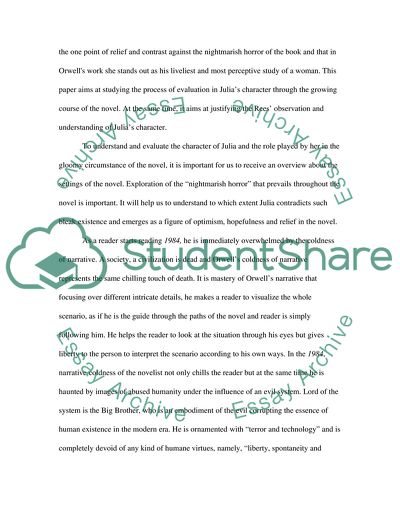Cite this document
(Julia as the Only Point of Relief and Contrast against the Horror of t Essay, n.d.)
Julia as the Only Point of Relief and Contrast against the Horror of t Essay. Retrieved from https://studentshare.org/literature/1721656-george-orwells-1984
Julia as the Only Point of Relief and Contrast against the Horror of t Essay. Retrieved from https://studentshare.org/literature/1721656-george-orwells-1984
(Julia As the Only Point of Relief and Contrast Against the Horror of T Essay)
Julia As the Only Point of Relief and Contrast Against the Horror of T Essay. https://studentshare.org/literature/1721656-george-orwells-1984.
Julia As the Only Point of Relief and Contrast Against the Horror of T Essay. https://studentshare.org/literature/1721656-george-orwells-1984.
“Julia As the Only Point of Relief and Contrast Against the Horror of T Essay”, n.d. https://studentshare.org/literature/1721656-george-orwells-1984.


